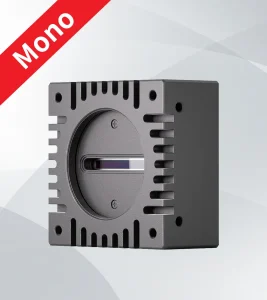They improve production efficiency in a number of ways, though — industrial cameras help businesses streamline operations and maintain quality control.
Industrial cameras bring greater precision to inspection, in manufacturing, reducing defect rates. For example, a 12-megapixel camera may have more resolution than the unaided eye and could thus discern small defects in high-contrast imaging applications. This feature is the reason why we can prevent as many as 30% defects, for example in a highly precise electronics assembly line.
Quicker Inspections; Speed of inspection is the other virtue. With frame rates of 60 frames per second (fps), industrial cameras can analyse high-speed production lines in a very fast manner. In an automotive instance, where parts are being moved rapidly on assembly lines, these cameras can process as many 10,000 images per hour in the name of ensuring that quality checks keep pace with production rates.
In addition, because they require less manual interventions such as inspection checks with an industrial camera based automated visual inspections systems also optimise the overall workflow. Cameras used in packaging processes capture errors and then the system is able to reject defects as they are made instead of employees having to check by hand, saving labor costs and reducing human error. These systems are able to handle thousands of packages an hour, thus increasing throughput and maintain consistency.
In order to increase the overall production efficiency, it is integrated with other industrial automation systems. Cameras made for industrial applications that support standards like GigE Vision or USB 3.0 are much more convenient as they can send data quickly and easily improve traffic with machine vision systems. The features make real-time adjustments based on camera feedback, offering production parameter optimization and theoretical downtime elimination.

And industrial cameras also auto integration, data collection, and analysis support. Production line Cameras can record process performance data, which might be used to determine bottlenecks and inefficiencies. For instance, a bottling plant can use data from its camera systems to observe fill levels over time,xii which references continued adjustments in the process of production for higher overall accuracy and less waste.
In addition, industrial cameras have a longer life span and can ensure the reliability in harsh environments. Additionally, these cameras have an IP67 rating designed to improve resistance against dust and water to maintain a constant state in foul weather. The heavy duty nature means it encountered less wear and tear leading to reduced maintenance requirements, with fewer stops in production because of the failure.
In general, industrial cameras assistance by increasing the accuracy of inspection jobs and replace human function thus saving time in parallel can increase speed up to 7 times automate processes because they are often integrated with existing automation solutions or offers much data for optimization. Find out more about the advantages of using industrial cameras in your production processes by visiting industrial. cameras